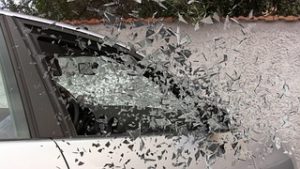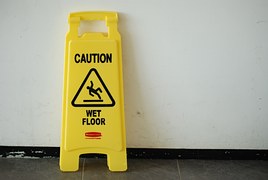Patterson Bray Wins on Motion to Dismiss

Victory for Patterson Bray!
Patterson Bray is happy to announce a victory in a business litigation case. Our strategy? A Rule 12 Motion to Dismiss. Our client, a former officer and employee of a factoring corporation, was wrongfully sued in his individual capacity by a former customer of his employer. Our client served as Chief Financial Officer, and had merely signed agreements on behalf of the company. The Plaintiff alleged that our client’s employer had misapplied payments and committed other improper acts in connection with their Factoring and Buyout Agreements.
Our Strategy
The Complaint contained numerous allegations against the factoring corporation, but its only mention of our client was that he was an officer of the company, and that, as an officer he was somehow responsible for implementing the policies and procedures that damaged Plaintiff.
After our firm was hired to represent the former officer, we carefully analyzed the Complaint filed against him in Federal Court. In our judgment, the claims in the lawsuit were neither valid nor properly stated, so we filed a Motion to Dismiss for Failure to State a Claim. See Federal Rule of Civil Procedure 12.
What is a Motion to Dismiss for Failure to State a Claim?
A motion to dismiss for failure to state a claim is filed at the very beginning of a case which argues, essentially, that a plaintiff’s claim is either not legally correct, or that insufficient facts have been alleged to suppose an otherwise valid legal claim.
When such a motion is filed, the judge must assume that all the allegations of the plaintiff’s complaint are true, resolving any and all doubts in favor of the plaintiff. For obvious reasons, then, such motions are usually very difficult to win. The corresponding benefit is equally obvious, though, because dismissal at this early stage allows the client to avoid most of the costs of litigation.
The Court’s Ruling in Our Case
The Federal District Court judge agreed with our argument and granted the Motion to Dismiss filed on behalf of our client. In dismissing the breach of contract claim, the Federal District Court Judge said:
A corporate officer cannot be held liable for a corporation’s debts merely because he exercises dominion or control over the organization. Schlater v. Haynie, 833 S.W.2d 919, 924 (Tenn. Ct. App. 1991). Likewise, a corporate officer signing a contract on behalf of corporation does not bind himself to the contract. Bill Walker & Associates, Inc. v. Parrish, 770 S.W.2d 764, 770 (Tenn. Ct. App. 1989). Instead, a court will only hold an officer liable on a contract if it appears that the officer signed the contract in his personal capacity.
Here, Plaintiff has alleged no facts showing that [the former officer] was a party to the Factoring Agreement in his personal capacity. The Factoring Agreement’s signature page clearly shows that [his] signature was in his capacity as CFO. (ECF No. 1-1 at 3.) Additionally, he is not even a signatory to the Buyout Agreement. Plaintiff’s Complaint instead apparently attempts to hold [the former officer] liable because he exercised control over [the corporation’s] actions. However, Tennessee law does not allow this. See Schlater 833 S.W.2d at 924. Therefore, its breach of contract claim against [the former officer] fails.
In dismissing the Plaintiff’s additional claims of conversion and fraud, the Judge went on to say:
A director or officer of a corporation does not incur personal liability for its torts merely by reason of his official character; he is not liable for torts committed by or for the corporation unless he has participated in the wrong.’” Cooper v. Cordova Sand & Gravel Co., Inc., 485 S.W.2d 261, 271–72 (Tenn. Ct. App. 1971).
Here, the only allegation against [the former officer] himself is that he “was responsible for implementing the policies and procedures that damaged Plaintiff,” or, in other words, acted as an officer of the corporation. Because Plaintiff’s Complaint lacks any reference to any tortious conduct on the part of [the former officer], it fails to state a claim against him for both conversion and fraudulent inducement.
This case was handled by Civil Litigation Attorneys Chris Patterson and Erin Shea.
Need a Business Litigation Attorney?
Call us at 901-372-5003 or visit our website to learn more about our services as business litigation attorneys.
We handle other kinds of cases as well, including: personal injury, apartment crime injuries, auto accidents, premises liability, wrongful death, contract drafting and review, general civil litigation, estate planning, wills, trusts, probate, business planning, and business entity formation.







 Call
Call 

 To recover in a slip and fall case, in addition to the general elements of negligence, you must prove either that: (1) the condition that caused your fall was created by the property owner; or (2) the property owner had actual or constructive notice that the condition existed before your fall. It is absolutely critical that you prove the condition or object that caused the fall.
To recover in a slip and fall case, in addition to the general elements of negligence, you must prove either that: (1) the condition that caused your fall was created by the property owner; or (2) the property owner had actual or constructive notice that the condition existed before your fall. It is absolutely critical that you prove the condition or object that caused the fall.
